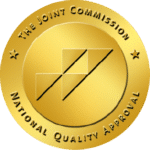Introduction
In response to a Washington Post Article “I tried ketamine to treat my depression. It was terrifying” by Steven Petrow, which was a single person’s experience, we decided to write this companion piece. From a provider’s perspective, it seems that the patient either wasn’t fully informed, or as he admits, didn’t take the time to understand what was told to him and to ask questions. Additionally, he also did not have any talk therapy before or after his treatments, which is crucial. Having proper expectations is very important for your treatment.
Depression is a serious condition that affects millions of people around the world. It’s also a highly stigmatized mental health issue. Click-bait and misleading ‘articles’ like the one above referenced from Washington Post discourage people from seeking safe treatment that is effective, and causes people many more years of suffering.
If you want to know more about ketamine therapy, please continue reading below:
What is ketamine therapy?
Ketamine is an anesthetic that has been used for decades, but it’s only relatively recently that researchers have found it to be effective in treating depression. It was even FDA approved in 2019 in the form of esketamine.
Ketamine therapy is exactly what it sounds like: a doctor or clinic will give you ketamine through IV, intranasally, oral lozenges, or intramuscularly at his or her office. Afterward, they’ll monitor you while they wait for the medication to take effect (usually within 5 minutes). A typical session lasts about 45 to 120 minutes and costs anywhere from $500-1,000 per visit–depending on where in the U.S. you live and how many times per week/monthly/yearly your doctor prescribes treatment sessions.
In addition to being less expensive than traditional forms of talk therapy or medication management plans when used as part of a comprehensive treatment plan (as opposed to standalone), there are also several reasons why people may choose ketamine over other options:
- It works quickly – Studies show that ketamine can reduce symptoms within 72 hours; however some patients report relief after just one session.
- It’s generally safe – Unlike other medications commonly prescribed by psychiatrists today such as SSRIs which come with side effects like nausea/GI issues etc., there are very few risks associated with taking this drug either orally, intranasally, or intravenously depending on how quickly results need to be achieved.
How is ketamine administered?
Ketamine is administered in a variety of ways. The most common method is intravenous injection, which involves placing the medication into your vein with either an IV needle or catheter. If you’re using ketamine for depression treatment, this will be done by a doctor or nurse at your clinic or hospital.
Another option is nasal spray, which delivers ketamine to your bloodstream through the nose. You may be given this option if you have trouble with injections due to past injuries or medical conditions like diabetes mellitus (high blood sugar). Nasal sprays aren’t always available at all clinics–you might need to ask about them when making an appointment.
The third method involves injecting the drug directly into muscle tissue via intramuscular injection (IM). This type of administration isn’t typically used for depression treatment because it takes longer than other methods; however, some people prefer IM injections because they don’t require any special equipment beyond what’s already present in most doctors’ offices and hospitals: syringes and vials filled with liquid medication ready for use!
What to expect during your first session.
What to expect during your first session:
- You will be asked to talk about your feelings. This may include how you’re feeling right now and how you’ve been feeling over the past week or month. You may be asked about what has been happening in your life, such as work and relationships (or lack thereof). You may also be asked about family history, including childhood experiences that could have affected you as an adult.
- The therapist will ask questions about medications or other treatments that have already been tried in order to get an idea of what might work best for you going forward.
- At the end of each session, we will provide feedback on what we have learned from our conversation together so far–this helps us both know where we are headed next time!
What happens during the session?
You will be asked to get comfortable in a chair or bed. The therapist may ask you to breathe deeply and relax. You may experience some side effects from the drug, such as dissociation (a feeling of floating) and increased blood pressure. These effects usually wear off after about an hour, but they can last longer if you have trouble relaxing or staying still during treatment sessions.
After each session, your doctor will likely monitor your response for side effects such as nausea, dizziness or headache for an hour or so after receiving ketamine therapy because these symptoms can also occur when someone takes too much acetaminophen at once–which is why it’s important not to drink alcohol while taking this type of pain reliever! It’s also normal for people who have received treatments before going into withdrawal syndrome when coming off heroin after using again after recovering from addiction; however if these symptoms persist then talk with their doctor immediately since they could cause lasting harm if left untreated.”
What are all of the negative side effects of ketamine?
The side effects of ketamine can be unpleasant, but they’re usually temporary and go away on their own.
The most common negative reactions to ketamine include:
- Dizziness or feeling faint — this is more likely if you stand up too quickly after treatment, so try to take it easy until you feel better!
- Nausea — if this happens, take an anti-nausea medication like Dramamine (dimenhydrinate) or Phenergan (promethazine hydrochloride) as prescribed by your doctor before your session. You may also want to try eating something beforehand (or during) your treatment session; many people find that food helps reduce nausea from ketamine.* Dry mouth — drink plenty of water throughout the day before and after getting a dose of ketamine for depression treatment!
- Some patients feel very detached and out of body. It may be scary at the beginning, but know the effects will wear off and you will return to your normal self. Ketamine can also cause dizziness, feeling lightheaded or faint. If this happens to you, try laying down on your side with your head lower than your heart for 10-20 minutes until the symptoms subside.* It’s important that you do not drive yourself home after treatment sessions until these effects wear off (usually within 4 hours of ingestion).
- Mood changes hours after or the next day. But these effects will be much milder than they were when you first took the dose and should not last more than a few hours. If you have any questions about using ketamine for depression treatment or other conditions, please feel free to ask your doctor.
- Temporarily feeling immobilized or numb is normal, and it should go away within a few hours. If you feel completely immobilized or unable to move at all, call 911 immediately. You might also want to consider seeing a doctor if you experience any of the following symptoms: confusion, hallucinations (seeing things that aren’t there), feeling like time has slowed down or sped up for no reason
Will I need to come more than once for treatment?
Depending on the severity of your depression, you may need to come back for more than one session. Some people might only need one session and others may need more than two sessions. The doctor will help determine what’s best for you during your consultation.
How effective is ketamine for depression?
Depression is a complex disease. It can affect anyone, regardless of age, gender and race. Depression is not a sign of weakness or personal weakness. It’s also not something that you can just “snap out of.” Depression can be treated with medication and/or psychotherapy (talk therapy), but some people don’t respond well to these treatments alone.
Ketamine therapy has been shown to be effective in treating depression when other therapies have failed–or when they’re just not an option due to side effects or other medical conditions.
Ketamine for depression is most effective when combined with cognitive behavioral therapy (talk therapy)
Cognitive behavioral therapy (CBT) is a type of talk therapy that helps you recognize and change negative thoughts, feelings and behaviors. It’s one of the most effective treatments for depression.
Combining ketamine with CBT has been shown to be more effective than ketamine alone in reducing symptoms of depression and suicidal ideation in people with treatment-resistant depression. The combination has also been shown to reduce anxiety symptoms among patients with bipolar disorder who were experiencing severe depressive episodes at the time they received the injections.
Ketamine therapy is a promising new option for treating depression.
Ketamine therapy is a promising new option for treating depression. The drug has been shown to have antidepressant effects in people with treatment-resistant depression, which is the most severe form of the illness and affects about 40% of people who are diagnosed with depression.
Ketamine works by affecting certain receptors in the brain called NMDA receptors (NMDAR). These receptors play an important role in regulating mood and memory function. When they’re blocked by ketamine, they cause changes in how we process information, experience emotions and remember things–all of which can improve symptoms of depression when disrupted by stress or trauma.
Conclusion
Ketamine therapy is a promising new option for treating depression. If you’re interested in learning more about ketamine and its potential as a treatment for your depression, anxiety, PTSD, Bipolar please contact us today.
310-571-5957
Los Angles, Tarzana, Torrance, Scottsdale








